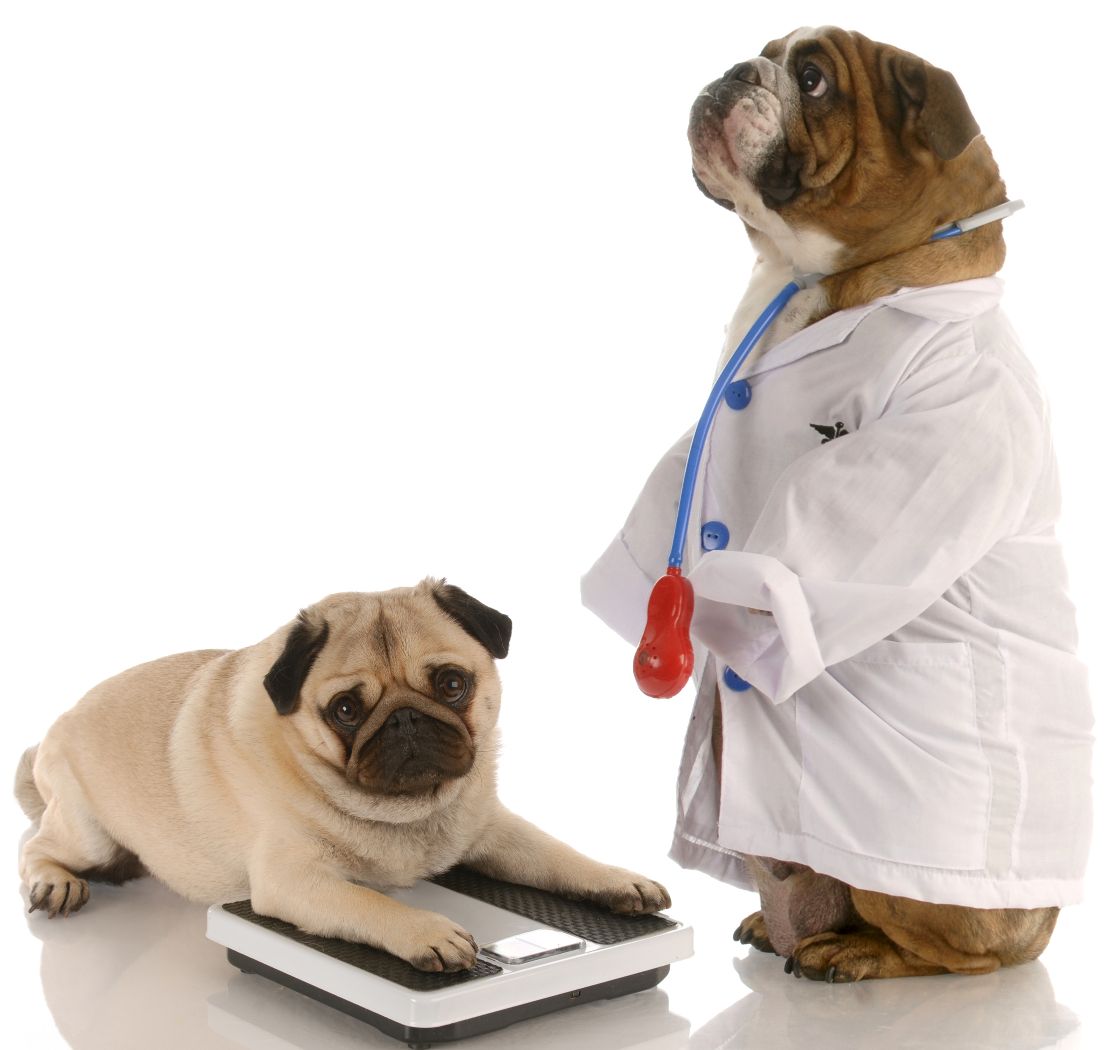
The Scary Truth About Pet Obesity in America
October 12, 2022Did you know that pet obesity is a huge problem in America? In fact, according to the Association for Pet Obesity Prevention, approximately 60% of cats and 56% of dogs in the United States are overweight. This is a significant issue, as pet obesity can lead to serious health problems like heart disease, arthritis, and diabetes. That's why keeping your pets happy and healthy is so important! On Pet Obesity Awareness Day, we want to remind everyone of the dangers of pet obesity and how they can help their furry friends stay fit and trim!
Is Your Pet Overweight?

Three quick steps to determine if your pet may be overweight.
- First, you should lightly run your fingers along the side of your dog. You should easily be able to feel their ribs and count them.
- Secondly, if you observe your pet from above, you should notice an hourglass figure or a dip near the waist. If your animal friend looks more like a blimp than expected, they may be overweight or obese.
- Lastly, as you look at your pet from the side, you should notice a slight tuck or an upwards slope of their tummy. If their abdomen hangs low and almost touches the ground (a condition called "Swiffer cats" by Dr. Ernie Ward), that suggests they have abdominal fat, which is the most dangerous type of fat.

Excess Weight Can Cause Medical Problems in Your Pet
Being overweight or obese can cause a pet to develop serious health problems, some of which may be life-threatening.
One of the most common consequences of pet obesity is arthritis. Excess weight puts added stress on a pet's joints, which can lead to inflammation and pain. Arthritis is not only painful for your pet, but it can also make it difficult for them to move around and stay active.
Other medical problems associated with pet obesity include:
- Diabetes
- High blood pressure
- Heart disease
- Respiratory difficulties
- Kidney disease
- Cancer
As you can see, pet obesity can seriously impact your pet's health. If your pet is overweight, it's essential to talk to your veterinarian about ways to help them lose weight safely and gradually. With proper care, your pet can live a long and healthy life.
It's Not Too Late
If you think your pet may be overweight, you should get them to the veterinarian for a check-up. There are some simple steps that you and your pet can take to help them lose some of the excess weight. It starts with us!
We must be more aware of what we are feeding our pets and ensure they get the proper exercise.
Counting Calories

Regarding our pets, we don't think about counting calories, but it's essential to do so. Just like us, our pets need a balanced diet. Be sure you're reading the back of the food you're feeding them. From Ethos Vet, here are nutritional calculators you can use for your pets:
No More Table Scraps

Feeding them table scraps or pet treats all the time can also lead to weight gain. Dieting is difficult for people, and it's no different for our pets. We want to give them treats when they're good, which often leads to weight gain. However, there are ways to work around this. For example, giving them smaller treats or breaking the treat in half before giving it to them can help reduce overall calorie intake.
Exercise is Key

Remember, just like us; our pets need exercise too! Dogs especially love to go for walks and play fetch. If you have a cat, try getting them a scratching post or toy that encourages them to move around. We need to keep them active. A body in motion stays in motion.
A Healthy Pet is a Happy Pet

We want what's best for our pets, and that means keeping them at a healthy weight. By being more mindful of their diet and ensuring they get enough exercise, we can help them live longer, happier lives. There are so many good reasons to keep your pet at a healthy weight, including:
- healthier joints
- more energy, better mood
- less risk for specific health issues
- overall better quality of life

Keeping our pets at a healthy weight is something we can all do to help keep them happy and avoid preventable health problems. If you're unsure if your pet is overweight, there are some simple ways to check at home. And if you find that they are carrying around a few extra pounds, it's never too late to start taking action. A healthy pet is a happy pet, so let's do what we can to keep them with us for as long as possible. What are you doing to ensure your pet lives a long and healthy life?
